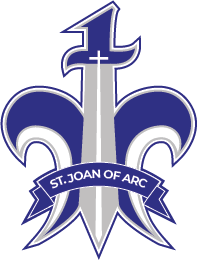On February 27, 2023 (Monday) guest speakers and neuroscientists Dr. Jonathan Thacker, a postdoctoral researcher in Alzheimer's research and Mount Sinai Health (MSH) Foundation research, and Ashish Kadia, a Master of Pharmacy and Research Technician, hosted a brain dissection lab and workshop series for grade 11 biology students taught by Nicholas McCowan at St. Joan of Arc Catholic Academy. This event was made possible through collaboration between Lunenfeld-Tanenbaum Research Institute (LTRI), Mount Sinai, and the University of Toronto.
The students were initially guided through a presentation delivered in a lecture-style format that covered various subjects related to neuroscience. The topic of neuroscience explored the central nervous system, and the presentation began with the engaging activity of building a brain. Dr. Thacker spoke about the brain neuron (presynaptic) and the oligodendrocyte neuron, as well as astrocytes, which he described as looking like stars. He showed an electron micrograph to illustrate these ideas. Functional components of the brain were also discussed. "In order to measure the responses of the brain outside of the body, the hippocampus is sliced out," said Dr. Thacker. By stimulating electrodes and recording the current into the slice, the stimulation current can be seen. Long-term potentiation (LTP) expression and its opposite, long-term depression (LTD), together form synaptic plasticity, which causes memory and learning. "The brain starts as a blank slate; if you don't use it, you lose it. It's all about survival," said Dr. Thacker.
During the presentation, Ashish Kadia discussed how math exercises can challenge critical thinking, making it an applicable skill. "For me, science is fun," he mentioned. Mr. Kadia also spoke about how his passion for science led him to pursue a career in research. "I wasn't a realist in my school days. As my master's thesis topic, I wanted to cure cancer. When my supervisor heard this, there was 5-7 seconds of awkward silence. But science is not about getting recognition, but rather helping," said Mr. Kadia.
Ashish Kadia's personal journey of becoming a scientist served as an inspiration to students who were ambitious, and he provided valuable advice on where their focus should be directed. "When you do science, you can change people's lives. It gives you that power!" said Mr. Kadia to the grade 11 biology students at St. Joan of Arc Catholic Academy.
The topic of whether pain is good or bad sparked a discussion among the students. Some argued that pain is a signal and a warning that something is not good before getting hurt, while others claimed that pain can come at a later time and indicate an issue, meaning that pain is bad. The conversation then shifted to mental health and its connection to the brain.
The students also participated in a discussion about neuroregeneration and the future of neuroscience. "The end goal of doing neuroscience is better health management," said Dr. Thacker. The potential benefits of neuroscience research and its applications in improving healthcare were discussed, highlighting the importance of the field in addressing various health challenges.
The lab workshop offered an interactive environment where students could actively engage in hands-on learning. Initially, the dissection commenced with students preparing their sanitary equipment, followed by the distribution of sheep brains that were generously donated by Mount Sinai.
The students were able to apply the knowledge they had gained from the earlier lecture and discussion to the practical task of dissecting the sheep brains. This allowed them to gain a deeper understanding of the brain's anatomy and how it relates to the functions discussed earlier.
Another student shared that they found the dissection workshop to be fascinating and that it had sparked their interest in the field of neuroscience even more. "It was interesting when I first touched it; it felt like hard rubber skin," said one student.
Dr. Thacker emphasized the importance of inspiring new brains, even for those who may not have initially enjoyed science. As a first-generation student himself, he encouraged students to pursue their interests and not be discouraged by challenges. Ashish Kadia also advised students to enjoy the learning process, seek practical applications, and strive for understanding rather than just memorization.
The brain dissection lab and workshop were a resounding success, providing students with an excellent opportunity to apply their knowledge and deepen their understanding of neuroscience. The interactive and hands-on nature of the workshop allowed students to engage with the material in a meaningful way and gain valuable insights from the guest speakers and neuroscientists. The hope of staff through this workshop is to provide opportunities for students to explore and encourage many to get involved in Science, Technology, Engineering, Art, and Mathematics (STEAM) pathways as they continue with their education.
Thank you Dr. Thacker and Mr. Kadia!


